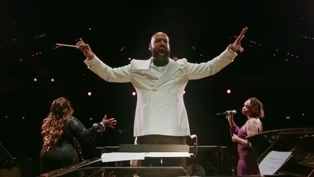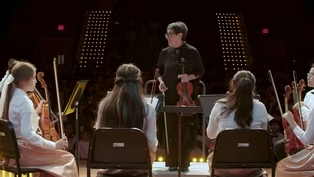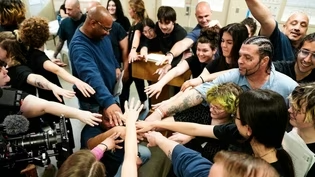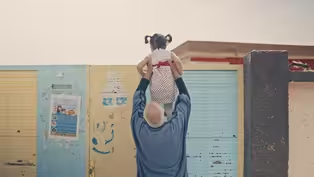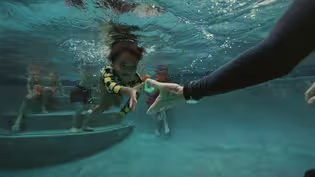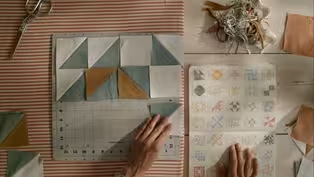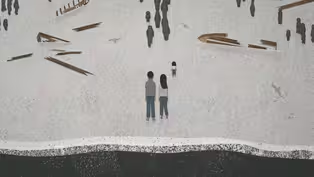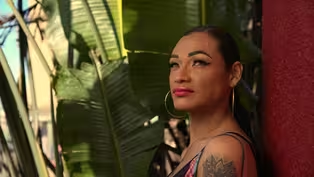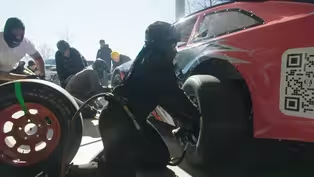
POV Shorts: Post-Colonial Queer
Season 32 Episode 206 | 25m 1sVideo has Closed Captions
Stories about the LGBTQ experience around the world.
Stories about the LGBTQ experience around the world.
Problems playing video? | Closed Captioning Feedback
Problems playing video? | Closed Captioning Feedback
Major funding for POV is provided by PBS, The John D. and Catherine T. MacArthur Foundation, the Wyncote Foundation, Reva & David Logan Foundation, the Open Society Foundations and the...

POV Shorts: Post-Colonial Queer
Season 32 Episode 206 | 25m 1sVideo has Closed Captions
Stories about the LGBTQ experience around the world.
Problems playing video? | Closed Captioning Feedback
How to Watch POV
POV is available to stream on pbs.org and the free PBS App, available on iPhone, Apple TV, Android TV, Android smartphones, Amazon Fire TV, Amazon Fire Tablet, Roku, Samsung Smart TV, and Vizio.
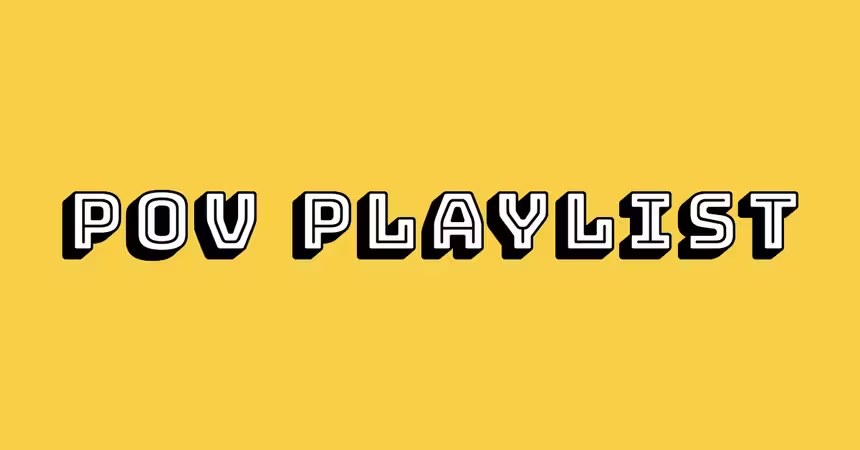
POV Playlist
Every two weeks, we curate a selection of POV docs, old and new, around a central theme. Stream while you can — until the next Playlist!Providing Support for PBS.org
Learn Moreabout PBS online sponsorshipMore from This Collection
The best and boldest independent short films, curated by America's longest-running documentary
POV Shorts: Songs of Black Folk
Video has Closed Captions
Leading Black musicians in the Pacific Northwest create new traditions on Juneteenth. (26m 55s)
Video has Closed Captions
A retired music teacher starts Georgia’s first youth orchestra for immigrant families. (22m 5s)
Video has Closed Captions
A history professor teaches a class of free and incarcerated students inside a prison. (38m 2s)
Video has Closed Captions
From big city to small town, two stories reflecting contemporary America. (25m 5s)
POV Shorts: The People Could Fly
Video has Closed Captions
A poetic look at roller rinks as sanctuaries for Black culture, joy, and resistance. (21m 48s)
Video has Closed Captions
Photographer James Balog brings the 15-year Extreme Ice Survey project to a close. (25m 5s)
Video has Audio Description
Ahmed must find a way to get his son’s remains back home to Morocco so he can say goodbye. (40m 19s)
Video has Audio Description
Kids learn to swim - and, in their lessons, we discover profound wisdom for all. (21m 9s)
Video has Audio Description
Two stories of quilted heirlooms and generational nostalgia. (24m 35s)
Video has Audio Description
Families traverse tradition and memory in marking new phases of life. (25m 5s)
Video has Audio Description
A portrait of the experiences unique to displaced queer people fleeing violence at home. (25m 5s)
Video has Audio Description
Two stories of women who trailblaze and persist. (24m 50s)
Providing Support for PBS.org
Learn Moreabout PBS online sponsorship♪♪ ♪♪ [ Melancholy tune plays ] ♪♪ ♪♪ [ Traffic whooshing ] [ Bird chirps ] [ Melancholy tune plays ] ♪♪ ♪♪ ♪ Boy ♪ ♪ I've been watching you ♪ ♪ Like a hawk in the sky that flies ♪ ♪ And you were my prey ♪ ♪ Boy, I promise you ♪ ♪ If we keep bumpin' heads ♪ ♪ I know ♪ ♪ That, one of these days ♪ ♪ We gone hook it up ♪ ♪ While we talk on the phone ♪ ♪ But see, I don't know ♪ ♪ If that's good ♪ ♪ I've been holdin' back ♪ ♪ This secret from you ♪ ♪♪ -Welcome to Britain, the land of afternoon tea, croquet, and the fine fillies of Royal Ascot.
We're proud of our imperial history.
It's the very foundation of our standing on the world stage today.
Switch on your television sets, and you'll see this heritage paid glorious tribute in our many superb period dramas.
For, verily, the past puts the "great" into Britain.
-I do identify as British.
I was born here.
I've always lived here.
I think it's kind of false for people to feel like people like me, whose grandparents immigrated here or whose parents immigrated here, aren't British, 'cause, like, what else am I?
-My parents are from a British colony, um, thus inherently there are parts of me that feel affiliated with, like, British culture, but essentially Black British culture, which I think in and of itself is something separate.
-Um, I do actually feel very British, probably because I'm half White.
I was born in London and can actually trace my family back to 18th-century London.
-I think I used to feel really comfortable saying that I was British because it wasn't being English, and English feels like something I'm not.
It feels like being White, whereas being British used to feel really multicultural and really safe.
But that felt like it changed with the EU vote, and I didn't feel British then.
I think the way that Black people are portrayed in the British media means that we're either persecuted or being the ones that are doing the violence, and we're never really shown with any nuance.
And I think recently I've noticed all the things that are being shown around queer stuff, I think, is just still really White and still really mainstream and not really showing like the diversity of the queer scene.
-A lot of it is like British heritage, period dramas.
Very seldom do I see, like, queer people of color being represented, let alone differently abled people, Muslim people.
Just it's a very narrow space.
-British TV shows at the moment that speak to me?
[ Chuckles ] -The only thing I can really think of that represented me in British media was "Bend It Like Beckham."
It was a really long time ago.
-Since "Sugar Rush," I've not really found anything that I'm into or that speaks to me and my identity.
I don't see myself on British screens.
-It's important to know the past so that you can appreciate the present.
The way that this country was built on the backs of colonized people, enslaved people -- that's really important.
It's not a nostalgia in the sense of missing that time.
It's an appreciation of those people's lives.
-I think the effect of period drama is to create a national myth, so it's about the stories that we tell ourselves, which is fine and I think it's an important thing to do.
But equally, if you don't see yourself in those stories, you then become the other, and that can have a political and social effect.
-People watch these period dramas and they get nostalgic feelings of times they weren't even born in and they could never in a supremely way understand.
When the masses around you enjoy a kind of nostalgia rooted in classism, imperialism, and racism, yes, it is harmful.
-I actually have to think about period drama a lot because I make period TV and film.
And it's tricky because when you're making drama, it's a commercial business and you're making things that you want the audience to enjoy.
-It feels to me as though we're less comfortable remembering our colonial history, and I think that's really problematic.
It feels like there is a long history of people of color being in this country, hundreds and hundreds of years of that history and that's not remembered.
I think those kind of shows -- and not necessarily just those shows, but just repeating only those shows -- erases us, and it's really problematic.
-When you don't see yourself represented on screens, it just makes you feel invisible.
You have a whole section of society that's excluded.
It definitely doesn't help with making people feel kind of integrated into society if you're not represented, especially for the younger generations.
But then I suppose it's forced us to really solidify our own communities and go out and make sure that we're being represented.
[ Horse whinnies, indistinct shouting ] ♪♪ ♪♪ ♪♪ ♪♪ ♪♪ [ Cheers and applause ] ♪♪ ♪♪ [ Bird calling, bell tolls ] -We are validating ourselves as a community because nobody else is doing it for us.
-I am a voice at the table, and certainly there have been moments when I've picked up on things which I think other people have missed and have made suggestions or decisions which have changed what has actually appeared onscreen.
-Part of what makes Britain and British identity great is queerness and Muslims being a really integral part of Britain, and that's the Britain that I'm a part of.
♪♪ ♪♪ [ Horn honks ] ♪♪ [ Speaking Spanish ] -[ Telephone rings ] -[ Speaking Spanish ] ♪♪ [ Dog barking in distance ] ♪♪ ♪♪ ♪♪ ♪♪ ♪♪ ♪♪ ♪♪ ♪♪ ♪♪ ♪♪ ♪♪ ♪♪ ♪♪ ♪♪ ♪♪ ♪♪ ♪♪
Support for PBS provided by:
Major funding for POV is provided by PBS, The John D. and Catherine T. MacArthur Foundation, the Wyncote Foundation, Reva & David Logan Foundation, the Open Society Foundations and the...
